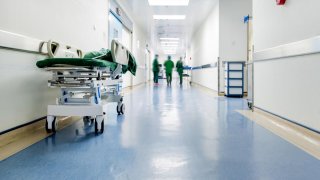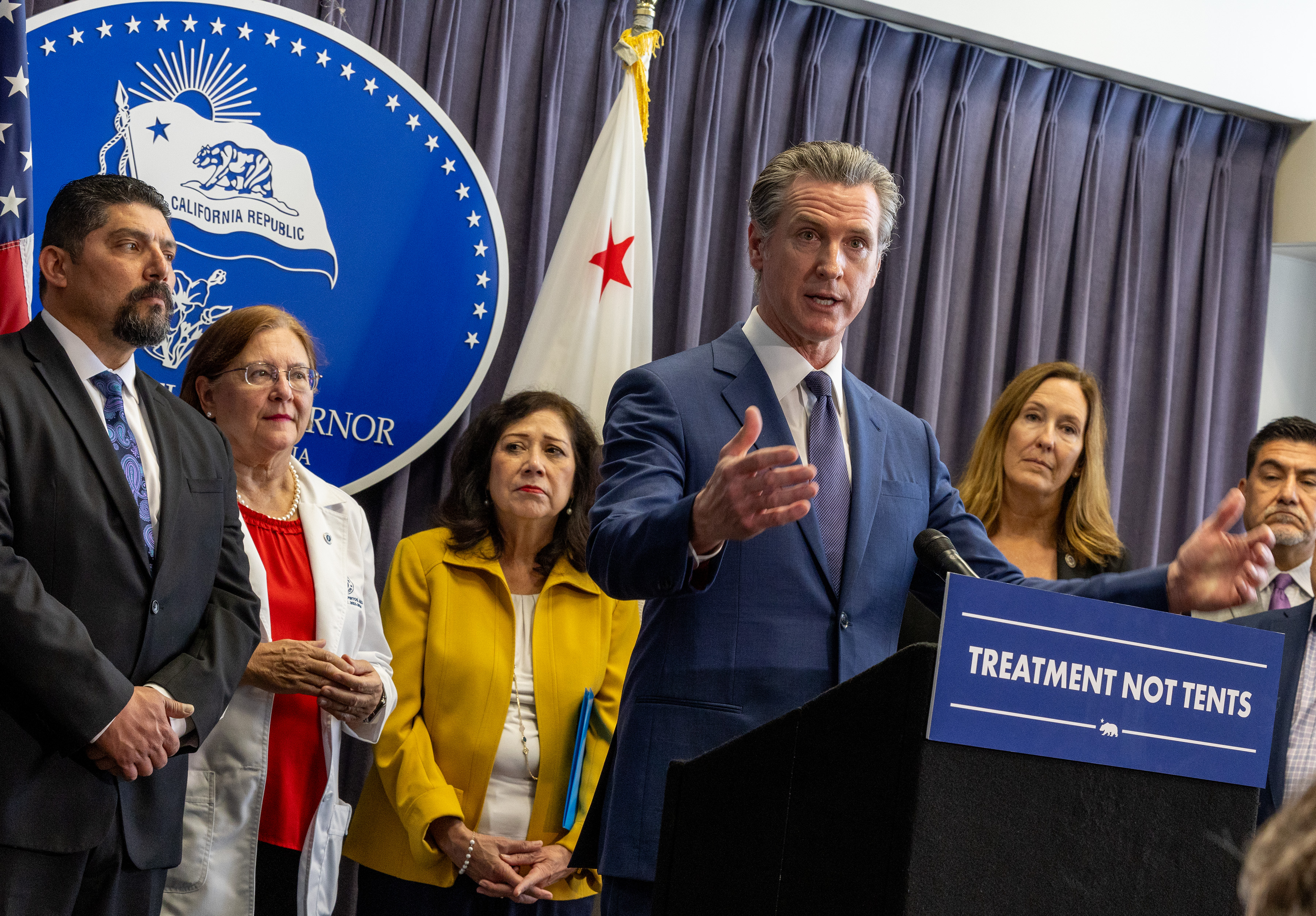
South Bay medical centers are prepared to resume knee replacements, gall stone removals, heart catheterizations and other so-called elective surgeries after Gov. Gavin Newsom lifted the ban on these types of procedures late last month, hospital officials say.
Doctors were previously barred from performing non-emergency operations amid an expected surge of COVID-19 patients. Now that the number of new coronavirus cases is trending downward, hospital officials say they're ready to accept patients who had to put off that hip or heart valve replacement because of the pandemic.
"Everyone has been cautious and eager to get that going," said Kenneth West, chief operating officer for Regional Medical Center. "We want to ensure that people aren't unnecessarily at risk or delaying things that may be necessary to do sooner rather than later."
West attributes a large number of COVID-19 cases at the East San Jose hospital for helping to ensure the necessary procedures were in place to handle coronavirus patients.
"I think it really challenged our team that we went over and above," West said.
West estimates that the hospital reached its peak in coronavirus cases around late March or early April - a total of 427 cases seen over a roughly six-week period. Now he says Regional Hospital is seeing about half as many.
Good Samaritan Hospital, which has a main campus in San Jose and an additional site in Los Gatos, reports a peak in COVID-19 cases around early March, according to the hospital's chief nursing officer Mark Brown.
Local
The hospital is unique, Brown said, in that it didn't have as many coronavirus cases as Regional Hospital and others but did start seeing them early - treating the third-known coronavirus patient in the state back in late January.
"We've been prepping for and dealing with (COVID-19 patients) for three months now," Brown said.
At its peak, Brown estimates that the hospital saw between 30 and 40 patients who either had the virus or who were under investigation. Now that number has dropped to one or two cases per day.
"It's extremely manageable," Brown said.
Both Regional and Good Samaritan created additional safety precautions at their hospitals, such as limited entrances to the buildings, screenings at the door and mask requirements for everyone. These measures and others - such as frequent cleaning of high-touch points in the buildings - are now considered standard protocol for hospitals and medical centers, West noted.
In many cases, patients have endured pain and discomfort from delaying these necessary operations, but the hospitals have taken a financial hit from the postponed procedures as well.
For example, at Santa Clara Valley Medical Center, O'Connor Hospital and St. Louise Regional Hospital, surgeries are down by more than 50 percent, said Maury Kendall, hospital spokesman for the three county-owned facilities.
"This has had a significant impact on patient revenues," Kendall wrote in an email to San Jos� Spotlight.
Hospitals across the Bay Area are facing financial fallout from fewer patients, partially because of the absence of elective surgeries, officials said, but also from an overall fear people have of visiting a medical facility during a pandemic.
At Stanford Health Care in Palo Alto, 14,000 workers were told late last month they would be hit with furloughs and pay cuts to help the hospital weather the financial hardship. The hospital sustained a drop in revenue following a 40% decrease in emergency room visits and elective surgeries.
Brown said overall hospital volume at Good Samaritan has dropped by roughly 50 percent amid the pandemic, with a cut to surgeries even greater than that.
Hospital workers not required to report to work because of the patient shortage have been paid 70 percent of their salaries instead of being laid off or forced to use their paid time off, Brown said. The policy is in place at the hospital until mid-May.
South Bay hospitals are resuming elective surgeries on Monday and have been carefully prioritizing surgeries from a backlog of patients.
Hospital leaders said they're grateful to the Bay Area counties for implementing shelter-in-place orders quickly, saying it has saved them from having to cope with the surge of patients seen in places like New York.
However, West said it's its still important to stay vigilant. "To some degree, the moment you stop stressing is when you let your guard down," he said. "We're still winding down the response phase, we're in the recovery phase (and have) started to reboot."



